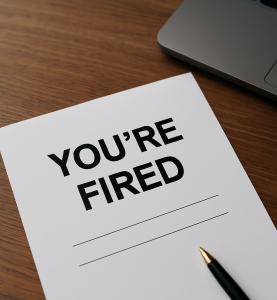We spend a huge chunk of our time at work, so ensuring our workplace addresses our needs is vital as it will result in a reciprocated movement: a happy workplace environment produces a thriving business. We speak to Lili Norris, whose approach to the field of Employment Law is very pragmatic and people oriented. She believes that in an area where human behaviour plays such a huge role, focussing on the law alone will produce correct answers in the academic sense, but not necessarily workable, commercial or practical answers on the ground. For this reason, she considers her work to be complementary to other legal firms rather than in competition with them. Lili addresses how far employment law has come along in the UK and what is in store post-Brexit
In advising businesses on employment matters in the UK, what do you find are the most pressing matters today?
The most pressing matters currently in Aberdeen, revolve around the low oil price and the effect this has had on, not only the oil industry, but all businesses in Aberdeen and the surrounding area. At the start of the downturn I was seeing individuals with settlement agreements as the redundancies started to mount. I tend to act for small to medium sized businesses. The ripple effect started to hit them a bit further down the line. Hotels, restaurants, leisure companies and private schools amongst others, are all starting to feel the effects as people begin to leave the city to find jobs elsewhere and companies cut back on their non-essential spending.
Who are commonly your clients and what sorts of challenges do each of these present?
My clients in terms of employment law advice and support tend to be small to medium sized businesses who either have a small HR team or no HR support at all. I offer support to them as and when they need it. I often find myself getting involved in more practical matters by providing hands on support, as well as advice. The main challenge for businesses of this size (which make up more than 90% of all businesses in the UK) is trying to run a profitable business whilst staying within the bounds of the law.
My new clients are often not aware that they can insure their business against employment law claims simply by asking their existing broker and as a result they find themselves either facing an expensive claim or having to pay to settle claims to avoid litigation.
Most of them can fall foul of the law by trying to do what they feel is the right thing and in doing so they inadvertently do/say something they think will help the employee, but actually results in legal problems; by taking matters into their own hands, businesses often fail to safeguard themselves against unjustified claims.
Many businesses have experience of working with lawyers who give long, technical answers to their questions which are difficult to interpret and put into action. However, these businesses cannot afford permanent HR support, and so I tend to fill that gap; I am a bit of a hybrid HR/employment law resource, qualified in law, but happy to assist with practical requirements. I often work alongside the company’s solicitors to help implement the legal advice that has been given.
What do you find is the most common factor most employers are unaware of in terms of employment law? What areas do companies often need the most training in?
I think that most employers just find employment law to be a bit of a mystery. They are in business to do business. They hire people to carry out work. It is only when things go wrong that they become aware of the minefield they have to navigate to, for example, manage performance, ill-health or conduct.
The short answer to both of these questions is that many employers are unaware of the legally required processes and procedures they have to follow when it comes to dealing with employees. I do carry out training to help with this, but every case is so different that the training will only take them so far. The main thing the training achieves is to help them spot the danger areas so they know when to ask for additional support.
How did you enter this specialist area and what keeps you thriving from day to day?
For me employment law was an exciting area from the outset as I qualified on the coattails of the UK signing up to the European Social Charter under Tony Blair’s leadership. In the late 90’s and early 2000’s we were bombarded with new employment laws from Europe and there was a lot of scope for innovation and fast learning in the field. After my traineeship, I was the first person in the firm to have the title ‘Employment Lawyer’ as this wasn’t a “thing” before. Court lawyers did employment tribunal representation and corporate lawyers drafted employment contracts. It definitely felt like the most “rock and roll” place to be at the time.
Obviously that excitement eventually died down as the UK caught up with the rest of Europe. The aftermath became even more interesting to me as now we had a mass of legislation where there previously was none, and all of these strange rules were being applied to everyday people. Employees were becoming more litigious and more aware that they had certain rights and employers were having to think about people issues more than ever. Working as a lawyer in this later phase of legal development led me back to my roots in psychology. In a world where the laws governing employment were complex, intertwined and often contradictory, surely the best answer was to get back to grass roots and understand the people involved and what they needed from any given situation? This new challenge is what keeps me thriving now.
Where does workplace mediation fit into the world of employment law and what are the benefits of taking this approach?
The beauty of working on my own and not being affiliated to any of the larger law firms, is that I can occupy and maintain a status of “independent third party”. I am instructed often by HR professionals in larger companies or by other lawyers to either carry out independent investigations into grievance or disciplinary situations or indeed to mediate between two or more people.
When an individual is at the point of raising a grievance, or is signed off with long term stress issues because they feel they have been bullied or treated badly, the legal approach is usually not helpful. This is because it forces the parties into opposition rather than collaboration. The employment “relationship” is just that: a relationship. Legal processes usually serve to break this relationship down rather than to repair it. By opting for some form of mediation, the employer can allow a neutral third party to step in and work closely with everyone to present a mutually desirable outcome, whether that involves getting things back on track or achieving an amicable and dignified parting. The other benefit of this is that it can be done whilst the employee is signed off and it is usually all completed within a week or two.
What are your hopes for the next two years in regards to employment law, particularly following Brexit and overall changes in the employment arena (i.e gig economy)?
The UK has always had unique labour traditions which stem from very different industrial roots than the systems found in other countries in Europe. This is the main reason that the employment laws emanating from Europe have always been a poor fit for our own economy and industrial traditions. Ever the optimist, I am hopeful that Brexit will allow the UK to retain the laws that work for us, but to develop more practical and UK focussed employment law mechanisms that will help us remain competitive in foreign markets. The trend towards a gig economy is probably fuelled by the high cost of employment rights and compliance with employment legislation. Brexit may even serve to turn this around, depending on what the government of the day does with employment legislation in future.




















